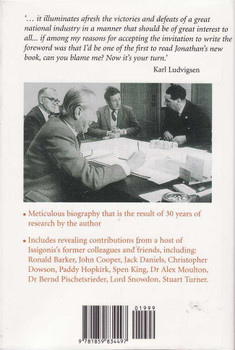Description
By: Stephen Olvey .
Description
Herschel McKee was undoubtedly lucky, and for most of his life it seemed he really was the man who would not die. Leaving home at 16, he sought adventure and found it in the trenches of World War One. He survived continual bombardment, vermin, sores and the loss of comrades. Then, joining the elite Lafayette Flying Corps, a group of young American pilots fighting for France, he became an Ace, with 12 kills, before being shot down — and still he cheated fate. After days of lying in a coma, he was imprisoned but somehow escaped, making it back to his unit just as the war ended.
Never content with the mundane, McKee became a riding mechanic in the 1919 Indianapolis 500 Mile Race, a diversion he enjoyed until 1937. When not racing he would barnstorm, ride motorcycles through flames, fly mail for the Postal Service, crash experimental aircraft and test cars for the Stutz Company.
He became entangled with a Chinese Tong gang, helped subdue an armed band of gasoline thieves, jumped from a burning airplane while helping a friend wing-walk, and crash-landed with a girl he was trying to seduce. He married three women, two at the same time — and, amazingly, those wives became friends.
Facing a mess domestically, he re-joined the military after the start of World War Two. Initially stuck at a desk job, he extricated himself, becoming assigned to the 44th Bomb Group in England. He flew B24s on missions to bomb the Ploesti Oil Refineries, the city of Berlin and the beaches of Normandy. While others perished or retired, he was promoted to Lieutenant Colonel and began a covert life in the fledging forerunner to the CIA, operating out of Florida.
This story celebrates his extraordinary life, but also looks at fear and worry and the futility of both. Men like McKee have no fear. Without them the envelope would never be pushed, significant advancements would be slower in coming, life would be duller. A little of McKee's spirit is needed in us all.
















